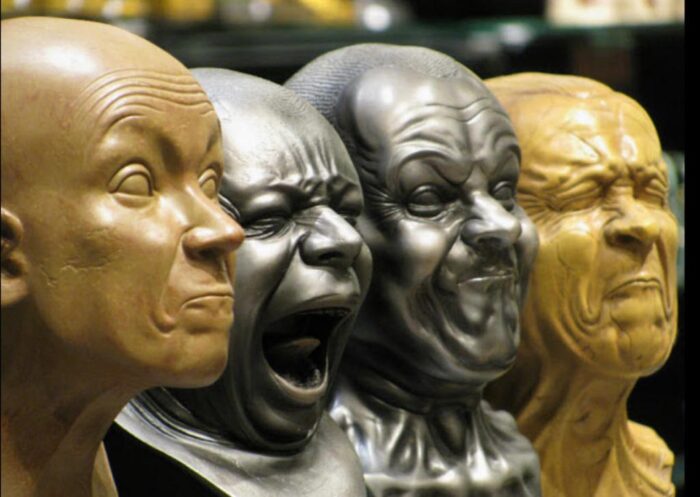What is human life without emotion? Could the “dawn of humankind” even be imagined without emotion exerting its effects right there from the start? And across the millennia emotion has forever been at the heart of most matters. Human history has been shaped by emotion and reshaped by attitudes toward emotion; a powerful human force philosophers and theologians confront and reckon with again and again throughout history and in every culture.
So near and so familiar to us all and yet emotions present all sorts of philosophical, psychological, and neuroscientific paradoxes. Many of the same mysteries elicited by the study of consciousness generally seem to re-emerge even after zooming our focus in on emotion. Are the neural signatures of an emotion the same as the experience of that emotion? Do feelings contribute to our evolutionary fitness or are they by-products, epiphenomena that somehow follow from some more fundamental form of adaptation? How can we ever know what it’s like to feel like a bat? Is that rat laughing at me?
Why do emotions seem to control us at times, control our thoughts and behavior, while at other times we apparently have control over them? Listening to music, sipping some tea, calling a close friend: all of these activities are a means to sculpt our state of mind. When do they work and why do they sometimes fail so miserably?
Do the emotions form a natural class? Cellos and oboes are both classified as instruments despite their obvious differences, and yet consider this: each can play the same melody. What features and what functions do the emotions share in common? This question is raised now especially as there is talk of incorporating empathy into artificial intelligence programming. Can sadness, anger, frustration, jealousy and joy be programmed? Should they be? Are they simply different component modules of general intelligence or do the emotions grow organically out of some other feature of experience that we don’t yet understand?
Participants:
Mabel Berezin is Distinguished Professor of Arts and Sciences in Sociology and Director of the Institute for Europeans Studies at the Einaudi Center for International Studies at Cornell University. She writes on challenges to democratic cohesion and solidarity in Europe and the United States. Berezin is the author of multiple articles on historical and contemporary right politics in Europe. Her books include: Illiberal Politics in… read more »
Katherine Elkins is Professor of Humanities and faculty in Computing at Kenyon College, where she teaches in the Integrated Program in Humane Studies. She writes about the age-old conversation between philosophy and literature as well as the more recent conversation about AI, language and art. Recent books include The Shapes of Stories with Cambridge University Press, which… read more »
Rob Hopkins is a philosopher at New York University who works mostly in the philosophy of mind and aesthetics. He’s recently finished a book, The Profile of Imagining (forthcoming, OUP), on the sensory imagination, relating it to other forms of imagining, to perception and to episodic memory. Previously, he’s published on pictorial representation and picture perception (the… read more »
Joseph LeDoux is a Professor of Neural Science at New York University. His work, which has spanned the topics of emotion, memory, and consciousness, and their interaction in the brain. He is an elected member of the National Academy of Sciences and the American Academy of Arts and Sciences. He has received a numerous awards… read more »
Rosalind Picard is founder and director of the Affective Computing Research Group at the MIT Media Laboratory, co-founder and chief scientist of Empatica, providing FDA-cleared biomarkers including the first smartwatch to detect seizures, and co-founder of Affectiva, providing software for technology with emotional intelligence. Author of over 350 peer-reviewed articles in AI and digital health,… read more »

I would like to attend. Do I need tickets?
No tickets or registration. Event is free and open to the public.
Just show up?
Yes, seating is first come, first served.
Thanks for letting me know.
Thank you
on zoom by chance?
No, you can find the roundtable on youtube, which will be streamed lived: https://www.youtube.com/watch?v=mKiABuyjnwc&ab_channel=helixcenter.
Thank you
Looking forward.thx.